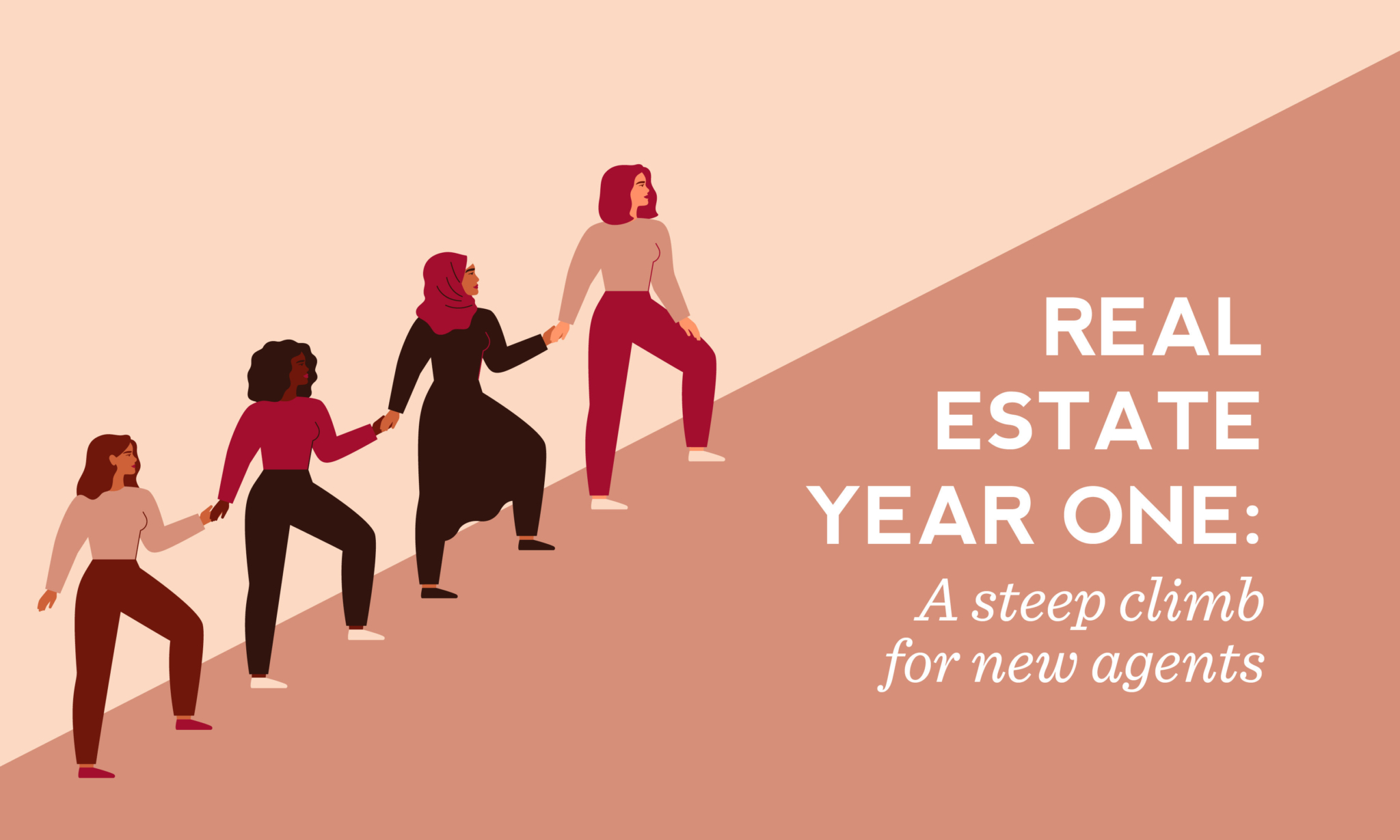By Jon Gorey
The barrier is not so much getting into real estate — it’s staying in. The median gross income earned by agents with two years of experience or less was just $8,900 in 2020, according to NAR’s Member Profile. For that meager reward, new agents worked a median of 30 hours a week. That’s one reason NAR reports an annual member churn rate of about 15%.
“It’s a really hard job to grow in this profession,” says Sonia Gilbukh, assistant professor of real estate at the City University of New York. “You have to do a lot of work for nothing in the beginning to grow your network and reputation.” In other industries, Gilbukh says, new entrants can typically offer services at a discount that reflects their inexperience — and can help them grow their business. “We don’t see any difference in commissions between someone who’s new and someone who’s experienced, and that’s a problem. The way the market works precludes that scenario, unless you work with someone like Redfin.”
That first year is an insurmountable hurdle for a lot of new agents, particularly Black agents, who are underrepresented in the industry. In 2016, moreover, they earned less than half what their white counterparts did on average. The Black Real Estate Agent Program — a new, first-of-its-kind initiative conceived by real estate technology company HomeLight and the National Association of Real Estate Brokers (NAREB) — is aiming to increase the number of successful Black agents in the field through a combination of financial, educational and career support.
The program has two key components, explains Sumant Sridharan, HomeLight’s chief operating officer. Selected agents are reimbursed for startup costs like licensing exams and MLS fees and receive up to $500 for marketing expenses, plus a one-year CRM software subscription. But they also receive ongoing training and mentorship from a NAREB broker. “We pair these agents with a mentor on the NAREB side, who will help them to succeed,” Sridharan says, “and they will from that point on get consistent training over the first year of being a real estate agent.”
Mentorship is crucial to helping new agents learn the tools of the trade and understand the business, argues Antoine Thompson, executive director of NAREB, the nation’s oldest minority professional real estate trade association. “You may have 1,000 contacts, but do you have them in a CRM? How do you keep in touch with them?” Thompson says. “It’s not just about getting people in there, it’s making sure that they are successful.”
While the U.S. Census Bureau estimates that 13% of America’s population is Black, only 6% of real estate agents identify as Black. Thompson and Sridharan hope the program can help improve representation in the field and, in turn, boost Black homeownership. Because right now, as homeowners across the country enjoy the wealth-building benefits of rising home equity, the vast majority of those gains are going to white households. The racial homeownership gap yawns as wide as it did back in the 1960s, before the Fair Housing Act passed.
Freddie Mac estimates that there are millions of “mortgage-ready” Black Americans, people with good credit and low debt-to-income ratios who haven’t yet bought a home, Thompson points out. “So how do we close that racial wealth gap? We need more dynamic, young, enthusiastic, well-trained real estate professionals that are going to be our boots on the ground,” he says, “who are out there talking to people about wealth building through real estate.”
Aspiring Black agents aged 18 to 35 can apply for the program online. Brokers who would like to mentor an agent through the program can email scholarships@nareb.com or call 301-552-9340.

